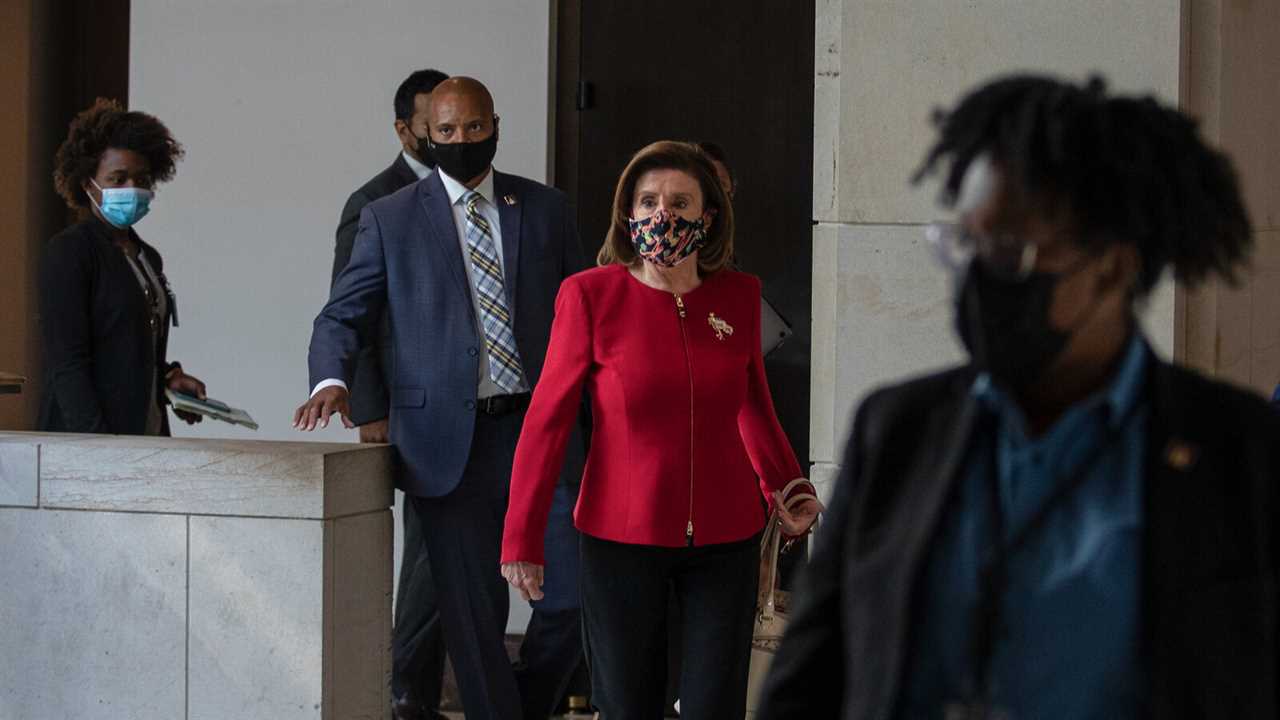
Congressional Democrats will turn this week to urgent fiscal matters, setting aside their ambitious, $3.5 trillion social policy measure for now as they try to keep the government operating beyond Sept. 30, raise the federal borrowing limit and meet Speaker Nancy Pelosi’s promise of an infrastructure vote by Sept. 27.
Ideological divisions within the party and intransigent Republican opposition will not make any of those tasks easy.
“Our leadership is on this,” Representative James E. Clyburn of South Carolina, the No. 3 Democrat in the House, said Sunday on CNN. “We are working with everybody in all corners of our party. They’re trying to get to a common ground on all of these issues, and I feel very comfortable that we are going to get there.”
With 10 days before much of the government runs out of money, House Democrats are expected to vote this week on a stopgap spending bill that would keep the government open and fund Hurricane Ida reconstruction, wildfire response, Afghan resettlement and other emergency matters.
That bill might then be paired with a measure to raise the debt limit that must pass before the Treasury can no longer pay its creditors — some time next month.
Representative John Yarmuth, Democrat of Kentucky and chairman of the House Budget Committee, said on “Fox News Sunday” that Democrats may choose to keep the debt limit separate from the spending bill — to show Republicans publicly rejecting the higher borrowing limit needed to pay for tax cuts and spending incurred under President Donald J. Trump.
“I personally would like to see a clean vote on a debt ceiling, so that Republicans actually have to go on the record on that vote only and not mix it with a funding measure,” he said, “but ultimately, the most important thing is to get both of them done.”
Senate Republicans remain adamant that they will not vote to raise the debt ceiling, although Democrats helped them with the issue in the Trump years. If Republicans decide to filibuster, the government could careen toward its first-ever default. That, in turn, could trigger a financial crisis, or at the least, a crisis of confidence in the creditworthiness and governance of the United States.
If Democrats decide to link a debt ceiling increase to disaster relief, they may be hoping to win over Republican senators from states hit hard by hurricanes and wildfires. But Senator Bill Cassidy, Republican of Louisiana, showed little willingness to compromise on Sunday.
“If you want to come back and meet where we can actually find common ground, where we can actually address needs as opposed to a Democratic wish list, well then we’ll help,” Mr. Cassidy said on NBC’s “Meet the Press.” “But not when you’re just trying to tank the economy by fueling inflation.”
Some parts of Louisiana were still without power three weeks after the state was hit by Hurricane Ida.
Beyond those partisan divisions are debates within the Democratic ranks. Ms. Pelosi promised moderate Democrats that she would take up a Senate-passed, bipartisan infrastructure bill by Sept. 27, buying some time to advance the party’s social policy measure — a priority for liberal Democrats.
But Democrats are nowhere near a final version of the social policy bill that can maintain near-total Democratic unity in the House and Senate, and House progressives are threatening to vote down the infrastructure bill if it reaches the floor first. Mr. Yarmuth said “the current plan” is still to bring the infrastructure bill to a vote next Monday, but he suggested some creative legerdemain could be in the works to paper over the divisions.
“Under the rules, the speaker does not have to actually advance the bill to the president for signature,” he said Sunday. “She can hold onto that bill for a while. So there’s some flexibility in terms of how we mesh the two mandates.”






